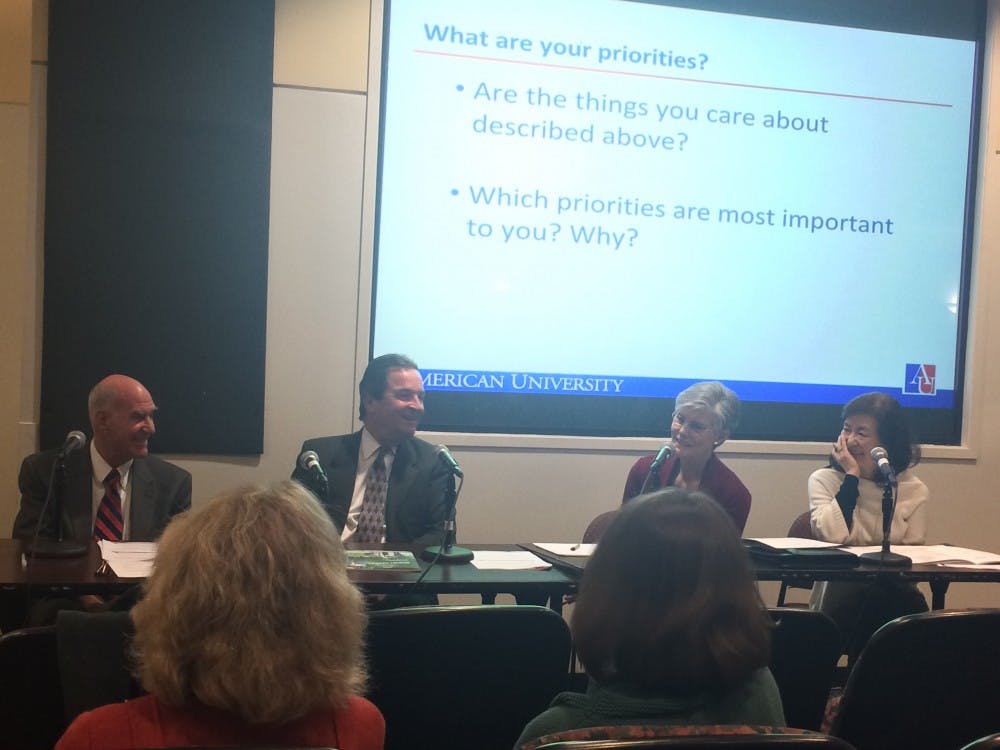This story has been corrected to reflect that the town hall was hosted by Student Government, not administrators. In addition, we have removed a portion of the story about the unusual timing of the town hall before the release of the budget. Past budget town halls have taken place at similar times in the budget process.
Student Government hosted a town hall on Feb. 6 with the University Budget Committee regarding the 2018-2019 budget, moderated by Student Government President Devontae Torriente and Comptroller Shannon McDermott.
After announcing a list of the Budget Committee’s 15 main budget priorities, the committee gave students the chance to ask questions about their concerns for the budget. The event was also broadcast on Facebook Live, allowing for students who did not attend to ask questions via social media.
“It is important that we include you in the process as much as possible,” Torriente said to the small audience of students in Ward 2.
Four questions from students pertained to diversity and inclusion and what the committee plans to finance in order to make the University a safe space for people of color.
Freshman Jamika Holmes told the council that she did not feel welcome when she arrived on campus due to incidents of harassment against black women last fall. Other students pointed out that while the committee included diversity and inclusion as a budget priority, they did not specify what kinds of support the funding would provide.
Provost Scott Bass responded by explaining different ways students of color could seek help on campus. He told Holmes that a program is being put in place for groups of incoming students to build community and receive advice from older student mentors. This program will be required for every student starting in 2018.
“We will be expanding it as a way to build bridges for students as they arrive on campus from anywhere in the country, or the world, that come here,” Bass said.
Vice President of Campus Life Gail Hanson brought up a new class that will be added into the curriculum specifically for this issue. AUX2 will be a one and a half credit course on identity and inclusion that will be implemented this fall. Hanson herself previewed the course and called it “incredibly engaging.”
“We hope it’s going to make a difference in the way people conduct themselves in this community,” Hanson said.
Students also asked about the RiSE initiative, or “Re-inventing the Student Experience.” This new project aims to improve the undergraduate experience with new core curriculum and enhanced advising.
The Budget Committee explained that they came up with the program after asking new students to participate in several focus groups, take surveys and keep journals about their transitions into college life. New required classes dealing with the introduction to college life and diversity will be added to the curriculum in the coming years.
“The undergraduate experience is not just in the classroom, it’s all connections that the student has,” Bass said. “It is a relationship of an authentic and deep learning experience.”
Other issues that students discussed with committee members included concerns with housing, mental health resources, financial aid and the rise of tuition. Students hoped that by directly voicing their concerns to administrators, they will be given more consideration in the upcoming budget announcement.
“The voice in the room matters,” Hanson said. “That’s where the power is.”





